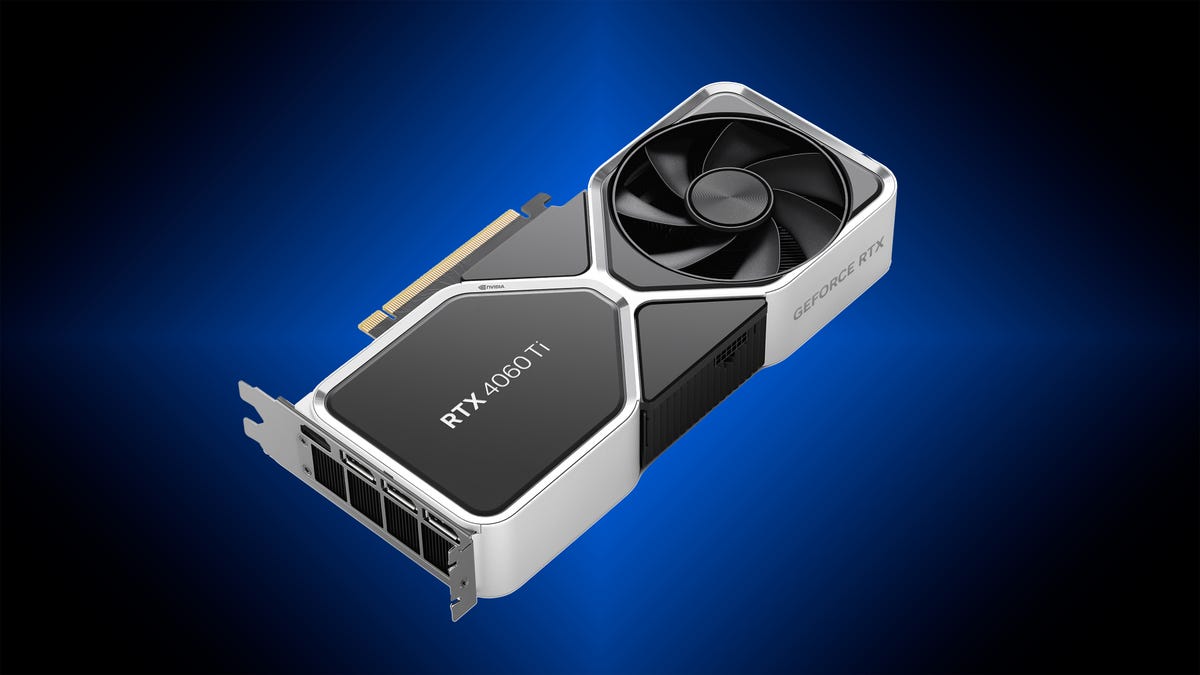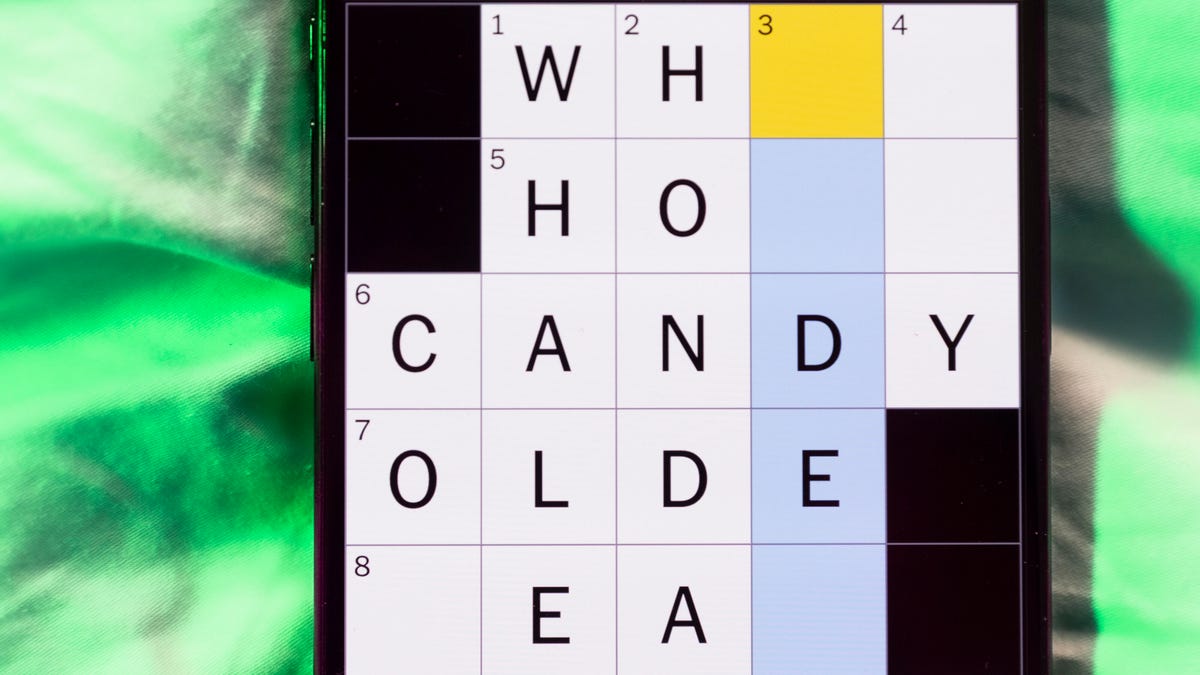Technologies
GeForce RTX 4060 Ti and 4060, Starting at $299, Are on Their Way
The value oriented,1080p-targeting end of Nvidia’s gaming GPU line looks promising.

Nvidia’s Ada-architecture GPUs for 1080p gamers — and for those whose pocketbooks can’t stretch to accommodate $500-plus graphics cards — are finally appearing to replace last generation’s RTX 3060 and 3060 Ti models, at really attractive prices.
The RTX 4060 Ti starts shipping next week. Nvidia will only be offering an 8GB version of its own Founders Edition cards, which start at $399; $499 and up 16GB models will be coming from its partners. We won’t see the $299-plus RTX 4060 cards until July, and Nvidia won’t be offering those itself.
Specifications
| Nvidia GeForce RTX 4060 Ti | Nvidia GeForce RTX 4060 | |
|---|---|---|
| Memory | 8GB or 16GB GDDR6 | 8GB GDDR6 |
| Memory bandwidth (GBps) | 288 | 272 |
| Memory clock (GHz) | 9 | 8.5 |
| GPU clock (GHz, base/boost) | 2.31/2.535 | 1.83/2.46 |
| Memory data rate/Interface | 18Gbps/128 bits | 17Gbps/128 bits |
| RT cores | 34 | 24 |
| CUDA Cores | 4,352 | 3,072 |
| Texture mapping units | 136 | 96 |
| Streaming multiprocessors | 34 | 24 |
| Tensor Cores | 136 | 96 |
| Process | 4nm | 4nm |
| TGP/min PSU (watts) | 160/550 | 115/550 |
| Max thermal (degrees) | 194F/90C | 194F/90C |
| Bus | PCIe 4.0×8 | PCIe 4.0×8 |
| Size | 2 slots | 2 slots |
| Launch price | $399 (8GB), $499 (16GB) | $299 |
| Ship date | May 24, 2023 | July 2023 |
The 8GB and 16GB versions of the 4060 Ti are identical in all other ways, though the latter may be a bit bigger to accommodate any extra cooling and it draws a smidge more power. It’s not the first time we’ve seen multiple memory configurations for a given GPU, but it never gets less confusing. Basically, jumping to 16GB can help if you want to load higher-resolution textures (for better quality), smoother video (and sometimes photo) editing and some other similar tasks.The two cards are also intended for upgrades or new builds of low-power — a power supply of 600w or less — or compact systems where you can’t fit or support a triple-slot, 11-inch long card.
The two cards are also intended for upgrades or new builds of low-power — a power supply of 600 watts or less — or compact systems where you can’t fit or support a triple-slot, 11-inch long card.
It’s generally worth bumping up to the Ada generation cards from previous generations for the performance improvement you get from Nvidia’s DLSS 3 optimization technology over DLSS 2, though I can’t state whether that general observation holds as true for these specific GPUs until I get to test them. Based on specs alone, the RTX 4060 Ti promises notably better performance than the lower end card.
It will also be interesting to see how well these perform relative to Intel’s Arc A750 and A770 GPUs, since those more modern cards have generally performed better than last-gen competitors.
Technologies
The Most Exciting Video Game Rumors and Leaks Ahead of 2026
Technologies
Today’s NYT Mini Crossword Answers for Wednesday, Dec. 17
Here are the answers for The New York Times Mini Crossword for Dec. 17.

Looking for the most recent Mini Crossword answer? Click here for today’s Mini Crossword hints, as well as our daily answers and hints for The New York Times Wordle, Strands, Connections and Connections: Sports Edition puzzles.
Need some help with today’s Mini Crossword? Read on. And if you could use some hints and guidance for daily solving, check out our Mini Crossword tips.
If you’re looking for today’s Wordle, Connections, Connections: Sports Edition and Strands answers, you can visit CNET’s NYT puzzle hints page.
Read more: Tips and Tricks for Solving The New York Times Mini Crossword
Let’s get to those Mini Crossword clues and answers.
Mini across clues and answers
1A clue: Nod (off)
Answer: DOZE
5A clue: Naval submarine in W.W. II
Answer: UBOAT
7A clue: Tricky thing to do on a busy highway
Answer: MERGE
8A clue: Heat-resistant glassware for cooking
Answer: PYREX
9A clue: Put into groups
Answer: SORT
Mini down clues and answers
1D clue: Break up with
Answer: DUMP
2D clue: Falls in line, so to speak
Answer: OBEYS
3D clue: Legendary vigilante who cuts a «Z» with his sword
Answer: ZORRO
4D clue: Rarin’ to go
Answer: EAGER
6D clue: Common reminder for an upcoming appointment
Answer: TEXT
Don’t miss any of our unbiased tech content and lab-based reviews. Add CNET as a preferred Google source.
Technologies
You Can Watch an Exclusive Avatar: Fire and Ash Scene on TikTok Right Now
Disney and TikTok partner on an immersive content hub for James Cameron’s latest movie about the alien Na’vi.
If you’re not quite ready to head to the theater to watch Avatar: Fire and Ash, an exclusive scene preview might sell you on the visual spectacle. As part of a new collaboration with the social media giant, Disney is posting snippets of its new movie to its TikTok account.
This scene isn’t part of any trailer and won’t be posted to other social media accounts, making TikTok the only place you can view it — unless you buy a movie ticket. A first look at the new movie’s scenes isn’t the only Avatar-related bonus on the social media platform right now, either. TikTok has partnered with the house of mouse to bring an entire «immersive content hub» to the app.
A special section of TikTok includes quizzes and educational videos that explore the alien world of Pandora shown off in the movies. On TikTok, you can take a personality quiz to find out what Na’vi clan you most closely align with and unlock a special profile picture border to use on your account.
Science and fiction blend together with a series of videos from real doctors who explain the basis for some of Avatar’s world-building. If you want to learn about exoplanets or how realistic the anatomy of the movie’s alien animals is, these videos will feed your brain while still providing entertainment value.
Perhaps the most enticing part of Disney’s latest social media collaboration is the opportunity for fans to win prizes and trips. TikTok creators who make edits with the #TikTokAvatarContest hashtag are entered into a competition to win Avatar merchandise. The biggest winners will be able to take a trip to visual effects studio Wētā Workshop in New Zealand or visit Avatar director James Cameron’s Lightstorm Entertainment Studio in Los Angeles.
Avatar: Fire and Ash is the third installment in director Cameron’s cinematic passion project. While the first Avatar movie was released in 2009, Cameron didn’t release another entry in the franchise until 2022. In total, there is a five-movie arc planned for the indigo alien Na’vi on the moon of Pandora.
The Avatar movies are known for pushing the boundaries of CGI visual effects in cinema. They are also historically big winners at the box office: the original Avatar is the highest-grossing film of all time, earning $2.9 billion across its theatrical releases. Its sequel, Avatar: The Way of Water, is the third-highest-grossing film of all time, trailing Avengers: Endgame. You can stream those movies on Disney Plus.
It remains to be seen whether Avatar: Fire and Ash will financially live up to its predecessors. The film currently has mixed reviews from critics on Rotten Tomatoes.
-

 Technologies3 года ago
Technologies3 года agoTech Companies Need to Be Held Accountable for Security, Experts Say
-

 Technologies3 года ago
Technologies3 года agoBest Handheld Game Console in 2023
-

 Technologies3 года ago
Technologies3 года agoTighten Up Your VR Game With the Best Head Straps for Quest 2
-

 Technologies4 года ago
Technologies4 года agoBlack Friday 2021: The best deals on TVs, headphones, kitchenware, and more
-

 Technologies4 года ago
Technologies4 года agoVerum, Wickr and Threema: next generation secured messengers
-

 Technologies4 года ago
Technologies4 года agoGoogle to require vaccinations as Silicon Valley rethinks return-to-office policies
-

 Technologies4 года ago
Technologies4 года agoOlivia Harlan Dekker for Verum Messenger
-

 Technologies4 года ago
Technologies4 года agoiPhone 13 event: How to watch Apple’s big announcement tomorrow
